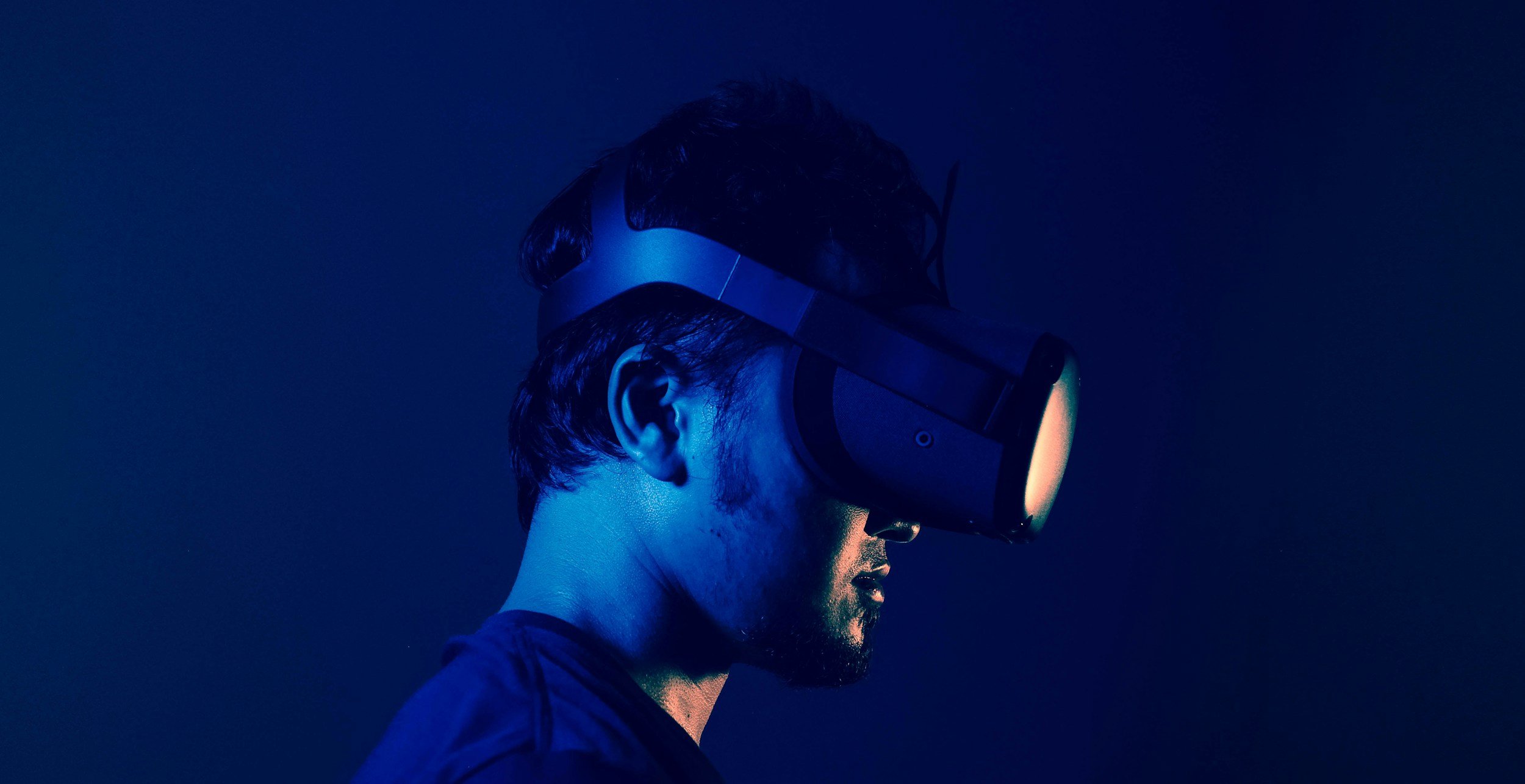

Virtual Reality (VR) Therapy Sydney:
Experience New Paths to Healing
What is Virtual Reality (VR) Therapy?
Welcome to the future of therapy! Virtual Reality (VR) Therapy is an innovative, evidence-based therapeutic approach that uses immersive virtual environments to help individuals address a wide range of mental health challenges. Unlike traditional talk therapy alone, VR therapy transports you into computer-generated, interactive scenarios designed to safely and effectively engage with your fears, anxieties, or emotional responses in a controlled setting.
Using a specialised VR headset and sometimes additional controllers, you'll be fully immersed in a realistic 3D world. This allows us, as your therapists, to carefully tailor experiences that directly relate to your therapeutic goals. Imagine confronting a fear of flying from the safety of our Sydney office, or practicing social interactions in a low-pressure virtual environment. VR therapy leverages the power of immersion, alongside tradition principles of Cognitive Behavioural Therapy to create powerful learning and healing opportunities.
Key Benefits of VR assisted Therapy:
Controlled Environment: VR allows for precise control over therapeutic scenarios, enabling gradual exposure to triggers and challenges at a pace tailored to your comfort level.
Safety and Privacy: Experience challenging situations in a completely safe, confidential, and judgment-free space within the therapy room.
Personalised Treatment: We can customise virtual environments and scenarios to directly target your specific fears, traumas, or areas for growth.
Enhanced Engagement: The immersive nature of VR can increase engagement and focus, making therapy more impactful and often more enjoyable.
Real-World Skill Practice: What you learn and practice in VR can directly translate to improved coping skills and confidence in your daily life.
Accessibility: For situations that are difficult or impractical to recreate in real life (e.g., fear of flying, specific traumatic events), VR provides an accessible alternative.
Conditions VR therapy can treat:
VR therapy is proving to be a powerful and versatile tool in treating a variety of mental health conditions. As a clinical psychologist in Sydney, I utilise VR therapy as a complementary tool to traditional evidence-based approaches like Cognitive Behavioural Therapy (CBT) and Exposure Therapy.
Here are some of the key areas where VR therapy can be highly effective:
Anxiety Disorders:
Specific Phobias (e.g., Fear of Flying, Heights, Spiders, Public Speaking): VR Exposure Therapy allows for systematic desensitisation by gradually exposing you to feared objects or situations in a controlled virtual environment.
Social Anxiety Disorder: Practice social interactions, public speaking, or navigating crowded spaces in a safe, repeatable virtual setting, building confidence before engaging in real-world scenarios.
Panic Disorder: Learn to manage panic symptoms in simulated environments that mimic triggers, helping you to regain control.
Generalised Anxiety Disorder (GAD): VR can offer mindfulness and relaxation exercises in calming virtual landscapes to reduce overall anxiety levels.
Post-Traumatic Stress Disorder (PTSD):
VR exposure therapy can help individuals safely and gradually process traumatic memories and triggers in a controlled environment. This allows for habituation and the development of new coping strategies, often in conjunction with other trauma-focused therapies.
Pain Management:
VR can be used as a powerful distraction tool for both acute and chronic pain. By immersing individuals in engaging virtual worlds, it can reduce pain perception and anxiety associated with painful procedures or chronic conditions.
Obsessive-Compulsive Disorder (OCD):
VR can facilitate exposure and response prevention (ERP) for certain OCD presentations, allowing individuals to confront obsessional fears and resist compulsive behaviours in a controlled digital space.
Stress Management & Mindfulness:
Immersive VR environments can provide ideal settings for guided meditation, mindfulness exercises, and relaxation techniques, helping to reduce stress and improve overall well-being.
Depression:
While not a primary standalone treatment for severe depression, VR can be integrated into broader treatment plans to enhance mood, provide opportunities for positive experiences, and facilitate behavioural activation in a safe context.
And More!
If you're in Sydney and curious about how Virtual Reality Therapy might benefit your mental health journey, we invite you to reach out. VR therapy may not be appropriate for all people or all cases. As a clinical psychologist with experience in innovative therapeutic approaches, I can assess whether VR therapy is a suitable and beneficial addition to your treatment plan.
We are committed to providing personalised, evidence-based care to help you achieve lasting positive change.


